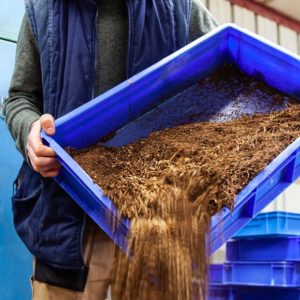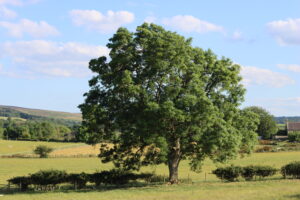Using insects for animal feed could slash deforestation
Using insects as animal feed could replace over half a million tonnes of soy and slash deforestation rates, according to a new report published today (July 1) by WWF.
Animal feed currently accounts for around 75% of soy production, but cultivation is fueling deforestation in several key ecosystems, including the Brazillian Cerrado, where more than 100,000 hectares of habitat is lost each year to make way for soy production.
However, new research commissioned by WWF in partnership with Tesco highlights the huge potential for insect farming in helping to tackle the climate and nature crisis.
The report projects that the total demand for insect-feed could reach 540,000 tonnes a year by 2050.
This could cut the UK’s projected soy imports by one-fifth, or around 150,000 hectares of land, almost the size of Greater London.
In addition to reducing deforestation, insect feed has the advantage that many insects are biological waste processors, meaning they can help to recycle and decompose material.
The report also highlights that around 240,000 tonnes of insect meal could potentially be sourced from UK insect farms.

However, the sector is currently constrained by several factors, including the fact that only a limited number of substrates are authorised for rearing insects which are intended to be used in animal feed.
WWF and Tesco are calling on the UK government to research the potential and regulatory requirements for using additional substrates for insect farming, which could allow a broader range of feedstocks to be used to farm insects.
Tesco is also urging the government to develop financial incentives to support innovative farming methods, such as insect farming, which will support the scale-up of these new industries.
Mike Barrett, executive director of science and conservation, at WWF said: ‘Livestock plays a crucial role in the global food system but producing feed for the 80 billion animals reared for human consumption each year is putting immense pressure on our planet’s resources. With nature in freefall and our climate in crisis, it’s vital that the food we eat here in the UK isn’t driving deforestation overseas.
‘We encourage the UK government and retail industry to take urgent action to get environmentally damaging practices out of our supply chains and off our shelves. This includes scaling up the use of alternative proteins such as insect meal and supporting calls for a circular feed system here in the UK.’
Photo Credit – WWF











